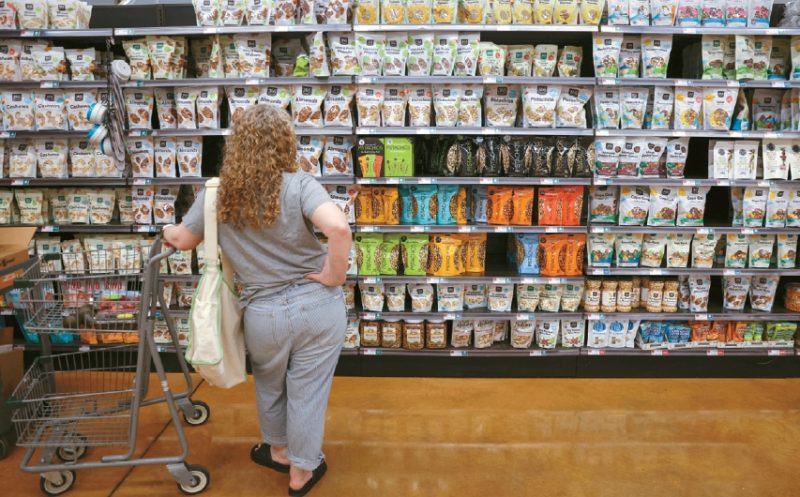Post-pandemic inflation has caused grocery prices to skyrocket by 25%, with more than one in four people skipping meals.
A survey conducted by Qualtrics in May of 2,011 adults found that 80% of respondents said grocery costs have “noticeably” increased in recent years.
Two Korean Americans living in the Los Angeles area shared their experiences with the Korea Daily.
An office worker in Los Angeles Koreatown surnamed Jung, bought a new insulated lunch box similar to the one he used in school to pack lunch every day. This is his way to combat the high cost of lunch, which he says is around $20 per meal with tip in Koreatown.

“If I can’t prepare it ahead, I just skip the meal and say to myself, ‘I’m on a diet.’ Packing lunches during the weekdays isn’t easy, but it saves me $400 a month.”
A college student living on her own in Pasadena, Kim, has been eating fast food more often lately due to the rising cost of living.
“People say it’s not healthy to eat fast food too often, but I need to do that to save money for living expenses like rent. Even then, I have to look for coupons in flyers or online to find a meal for less than $10.”
Besides groceries, other items that have seen price spikes include a 51% increase for gas, a 39% increase for utilities and monthly bills such as cable and internet, and a 27% increase each for housing and dining out.
As a result of the rising cost of groceries, 27% said they often skip meals, and 26% said they and their families have made unhealthy food choices because of the cost of groceries. In addition, 37% have changed their shopping habits, such as buying groceries at discount stores, and 21% have felt shame about not being able to afford groceries, indicating that surging inflation may be affecting consumers’ mental health.
Twenty-eight percent said that grocery costs prevented them from paying rent or monthly bills, 18% applied for or considered applying for food stamps, and 15% relied or considered relying on food banks.
Thirty-two percent of respondents reported spending more than 60% of their monthly income on essential expenses such as rent, utilities, and groceries, and 21% reported spending between 46% and 60% of their income.
Another 53% said they earned more than the threshold for government assistance, such as food stamps, but not enough to pay for necessities.
Forty-four percent of respondents felt financially insecure, with a higher percentage of 56% reporting insecurity for households with incomes of less than $50,000 per year. This stems from the survey’s result that the rising cost of living pushed 55% of respondents into some form of debt.
BY NAKI PARK, HOONSIK WOO [park.naki@koreadaily.com]

![Korean President Yoon Suk Yeol just got ousted. What’s next? President Yoon Suk Yeol attends the opening session of the Ministerial Conference of the Third Summit for Democracy in March last year. The Constitutional Court upheld the National Assembly’s impeachment of Yoon, ousting him from office on April 4. [YONHAP]](https://www.koreadailyus.com/wp-content/uploads/2025/04/0404-Yoon-100x70.jpg)
![Korean President Yoon Suk Yeol ousted from office after unanimous Constitutional Court ruling President Yoon Suk Yeol, right, delivers his closing statement at the 11th and final hearing of his impeachment trial at the Constitutional Court in Jongno District, central Seoul, on Feb. 25. [CONSTITUTIONAL COURT]](https://www.koreadailyus.com/wp-content/uploads/2025/04/0403-impeach-100x70.jpg)
![Clovine accelerates global expansion in collaboration platform market Website of Clovine, a cloud-based project management provider [Screenshot]](https://www.koreadailyus.com/wp-content/uploads/2025/04/0403-clovine-100x70.jpg)
